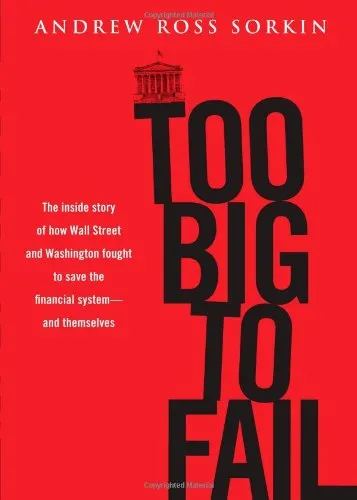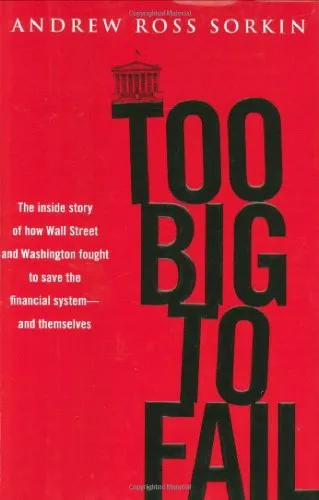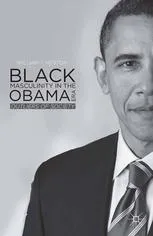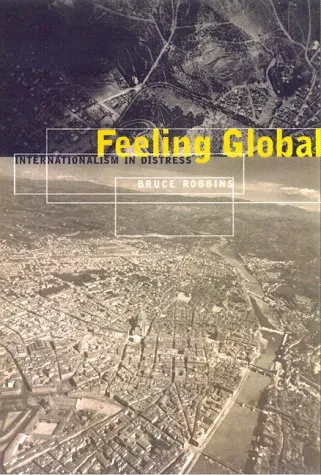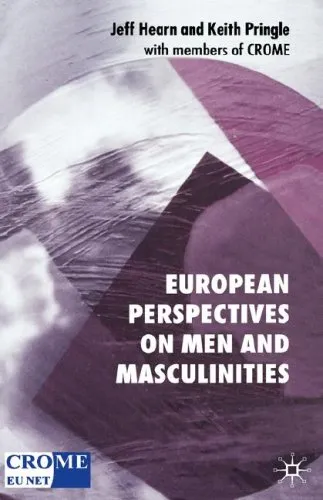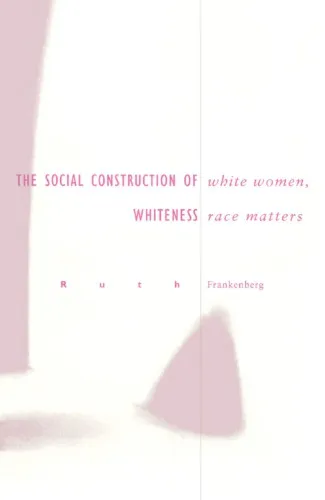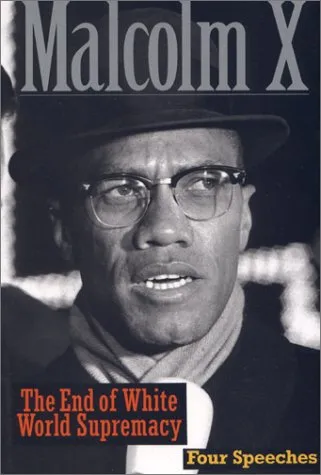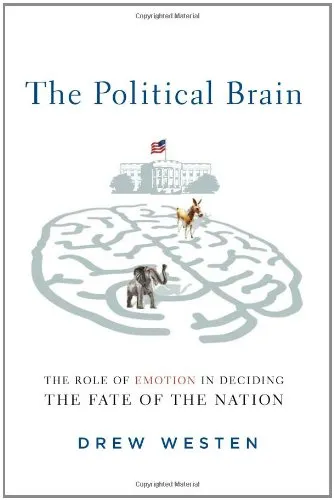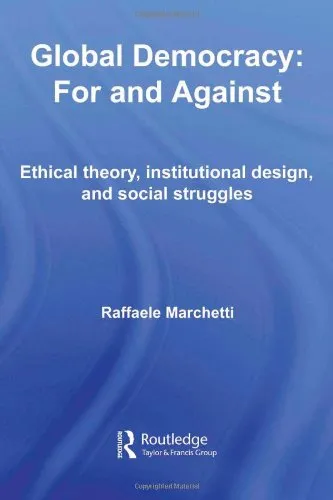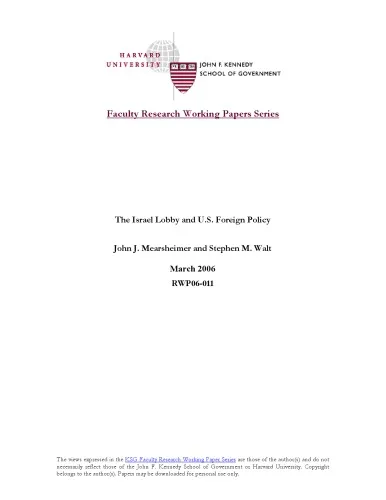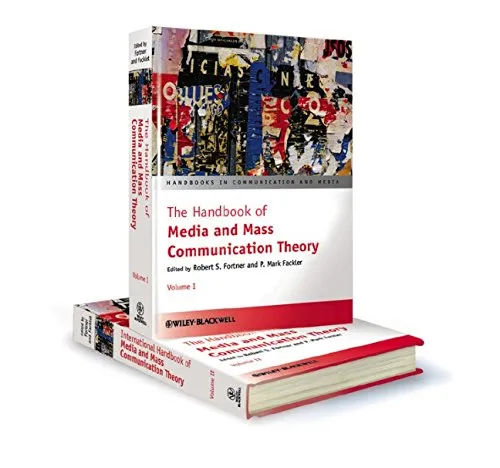Manly states: masculinities, international relations, and gender politics
4.3
بر اساس نظر کاربران

شما میتونید سوالاتتون در باره کتاب رو از هوش مصنوعیش بعد از ورود بپرسید
هر دانلود یا پرسش از هوش مصنوعی 2 امتیاز لازم دارد، برای بدست آوردن امتیاز رایگان، به صفحه ی راهنمای امتیازات سر بزنید و یک سری کار ارزشمند انجام بدینکتاب های مرتبط:
معرفی کتاب: Manly States: Masculinities, International Relations, and Gender Politics
کتاب Manly States نوشته من (شارلوت هوپر) یکی از پیشگامانهترین آثار در زمینه بررسی تلاقی جنسیت، masculinity و سیاست بینالملل است. این کتاب تلاش میکند تا دیدگاههای سنتی روابط بینالملل را به چالش بکشد و نشان دهد که چگونه درک ما از masculinities و نقش جنسیت بر سیاستهای کلان جهانی تأثیر میگذارد.
خلاصه جامع کتاب
این کتاب بررسی میکند که چگونه نظریههای روابط بینالملل تحت تأثیر ایدههای سنتی از مردانگی (masculinity) شکل گرفتهاند. به طور سنتی در رشته روابط بینالملل، قدرت نظامی، سرسختی و تمایل به سلطه به عنوان ویژگیهای مطلوب برای ملتها و رهبران آنها ارزشگذاری شدهاند. این خصایص به مردانگی مرتبط شدهاند و کمتر جایی برای تفکر درباره ویژگیهای جنسیتی دیگر یا دیدگاههای جایگزین وجود داشته است.
روابط بینالملل به ندرت به جنسیت به طور مستقیم توجه میکند، اما در عمل، هنجارهای جنسیتی اغلب تصمیمگیریها، استراتژیها و نتیجهگیریهای سیاسی را شکل میدهند. کتاب Manly States مفهومی نوین ارائه میدهد که بر اهمیت تحلیل masculinities در سیاست جهانی تاکید میکند و این ایده را مطرح میکند که سیاست جنسیتی فقط به زنان مربوط نمیشود. مردانگیها نیز باید مورد بررسی قرار گیرند، چراکه این نگرشها مبنای ایدئولوژیک بسیاری از سیاستها و رفتارهای بینالمللی هستند.
این اثر همچنین رابطه بین masculinities و قدرت را از جهات گوناگون بررسی کرده و پیامدهای آن را بر توسعه، امنیت و روابط چندجانبه توضیح میدهد.
نکات کلیدی
- روابط بینالملل همواره تحت تأثیر دیدگاههای مردسالارانه (patriarchal) و masculinities تاریخی بوده است.
- سیاست جنسیت در سیاست جهانی یکی از بخشهای مغفول مانده اما بسیار اساسی است.
- تحلیل هنجارهای جنسیتی به ما کمک میکند تا تصمیمگیریهای بینالمللی را از دیدگاه جدیدی نقد و بررسی کنیم.
- ایده «مردانگی هژمونیک» در این کتاب معرفی و تحلیل شده، که به معنای سلطه نوع خاصی از masculinity بر دیگر انواع هویتهای جنسیتی است.
- این کتاب رویکردهای موجود را با دیدگاه مبتنی بر gender studies ترکیب کرده و افقهای جدیدی برای پژوهشگران باز میکند.
جملات مشهور از کتاب
«روابط بینالملل بدون توجه به نقش جنسیت و masculinities، تنها بخشی از داستان قدرت و سلطه را روایت میکند.»
«مردانگی و سیاست جهانی چنان به هم تنیدهاند که گاهی نمیتوان مرزی بین هنجارهای اجتماعی و تصمیمهای استراتژیک قائل شد.»
«تحلیل مداوم masculinities روشی ضروری برای به چالش کشیدن ساختارهای ناعادلانه در سیاست بینالملل است.»
چرا مطالعه این کتاب ضروری است؟
کتاب Manly States به شکلی بیسابقه جنبه نظریهمحور و عملی روابط بینالملل را با هم ترکیب میکند. چرا این مهم است؟ زیرا بدون درک بنیادهای جنسیتی هنجارهایی که سیاستها را هدایت میکنند، ما تنها در سطح مشکلات صحبت میکنیم و از درون آنها آگاهی نمییابیم. این کتاب برای پژوهشگرانی که علاقهمند به درک عمیقتری از سیاست جهانی هستند، ابزاری ارزشمند است.
علاوه بر این، کتاب تلاش میکند توجهها را به سوی تنوع انسانی جلب کند. این تنوع باعث میشود تا روایتهای جدیدی در روابط بینالملل شکل بگیرد که تفاوتها را به رسمیت بشناسند. همچنین تحلیل masculinities مسیر جدیدی را برای ایجاد سیاستهای عادلانهتر و پایدارتر نشان میدهد.
در نهایت، این کتاب هم برای دانشجویان روابط بینالملل و gender studies و هم برای متخصصان سیاستگذاری عمومی و بینالمللی، اثری مرجع و الهامبخش است. مطالعه آن نه تنها نگرش آکادمیک را تغییر میدهد بلکه روی زندگی واقعی و تصمیمگیریهای کلان نیز تأثیر میگذارد.
Welcome to an insightful exploration of power, gender, and politics with "Manly States: Masculinities, International Relations, and Gender Politics". In this book, I delve into the intersections of masculinity and the discipline of International Relations (IR), where gender has often been overlooked despite its profound influence on global politics. By drawing on feminist theory, critical masculinities studies, and the foundational principles of IR, this work reimagines how we understand the systems of power that govern our world.
Detailed Summary of the Book
The book challenges the longstanding gender neutrality purported in the field of International Relations, demonstrating how masculinity, especially specific hegemonic formulations of masculinity, have been foundational to the discipline's evolution. Modern IR developed alongside a worldview that normalized the dominance of 'manly' traits such as strength, control, rationality, and aggression. These qualities, often associated with toxic or hegemonic masculinities, subtly informed the creation of policies, state behaviors, and institutional designs that have both reflected and reinforced patriarchal values in global politics.
In the first section of the book, I dissect the traditional notion of the state as an inherently masculine entity, examining its reliance on militarism, protectionism, and hierarchical power dynamics. By linking these structures to cultural representations of masculinity, I demonstrate how the state enforces a gendered identity through its practices.
Further into the book, I explore the relationship between individual masculinities—men as political actors—and the macrocosm of state behavior. This connection reveals how gender operates not only at a personal level but within the systemic constitution of nation-states, influencing issues as diverse as foreign policy, security frameworks, and global conflict narratives.
Finally, I consider what shifting these masculinized paradigms might mean for the future of international relations. Would a focus on cooperation, inclusion, or traditionally feminized traits, such as care and empathy, reshape the structures of global diplomacy and conflict resolution? These questions challenge not only practitioners and scholars of IR but also the wider public to reconsider the ways gender influences their understanding of global systems.
Key Takeaways
- Masculinities are deeply embedded within the foundations of international relations, shaping how states act and interact.
- Hegemonic masculinity has historically aligned with values like aggression, domination, and control, impacting global power structures.
- By analyzing gender politics, we can uncover biases within traditionally patriarchal disciplines like International Relations.
- Understanding the intersections of gender and state behavior opens the door to rethinking global diplomacy and conflict resolution.
- The book advocates for a more inclusive, multi-dimensional approach to international relations that considers traditionally marginalized perspectives.
Famous Quotes from the Book
"The state often mirrors the archetype of the ‘manly provider’ or ‘protector,’ while rejecting anything that might signify fragility or dependency."
"While International Relations prides itself on objectivity, the discipline itself has been shaped by gendered assumptions that remain unquestioned."
"To analyze the state is to analyze masculinity and its pervasive role in defining power and strength on a global scale."
Why This Book Matters
As global institutions grapple with crises of legitimacy, power imbalances, and systemic inequities, understanding the gendered foundations of these institutions becomes critical. "Manly States" offers a profound contribution to this understanding by merging feminist theory with international relations, areas that have often been viewed as distinct. It underlines why those working in academia, policy-making, or activism must consider gender as more than a peripheral issue—it is a central force shaping every layer of global structures.
This book brings a much-needed feminist lens to a field that has often resisted such inquiries, challenging readers to think beyond conventional paradigms. It is not only a critique of existing systems but also a call to action, urging scholars and policymakers to re-examine their roles in perpetuating harmful hegemonic masculinities. Moreover, it paves the way for alternative frameworks that better reflect the diverse and intersecting identities at play in global politics.
At its heart, the book matters because it centers the conversation on humanity. By rethinking IR through gender politics, I offer a pathway to more equitable and sustainable approaches to global governance, security, and peace. This perspective is vital as we envision a world that values cooperation over dominance and inclusivity over exclusion.
دانلود رایگان مستقیم
شما میتونید سوالاتتون در باره کتاب رو از هوش مصنوعیش بعد از ورود بپرسید
دسترسی به کتابها از طریق پلتفرمهای قانونی و کتابخانههای عمومی نه تنها از حقوق نویسندگان و ناشران حمایت میکند، بلکه به پایداری فرهنگ کتابخوانی نیز کمک میرساند. پیش از دانلود، لحظهای به بررسی این گزینهها فکر کنید.
این کتاب رو در پلتفرم های دیگه ببینید
WorldCat به شما کمک میکنه تا کتاب ها رو در کتابخانه های سراسر دنیا پیدا کنید
امتیازها، نظرات تخصصی و صحبت ها درباره کتاب را در Goodreads ببینید
کتابهای کمیاب یا دست دوم را در AbeBooks پیدا کنید و بخرید
1494
بازدید4.3
امتیاز0
نظر98%
رضایتنظرات:
4.3
بر اساس 0 نظر کاربران
Questions & Answers
Ask questions about this book or help others by answering
No questions yet. Be the first to ask!


